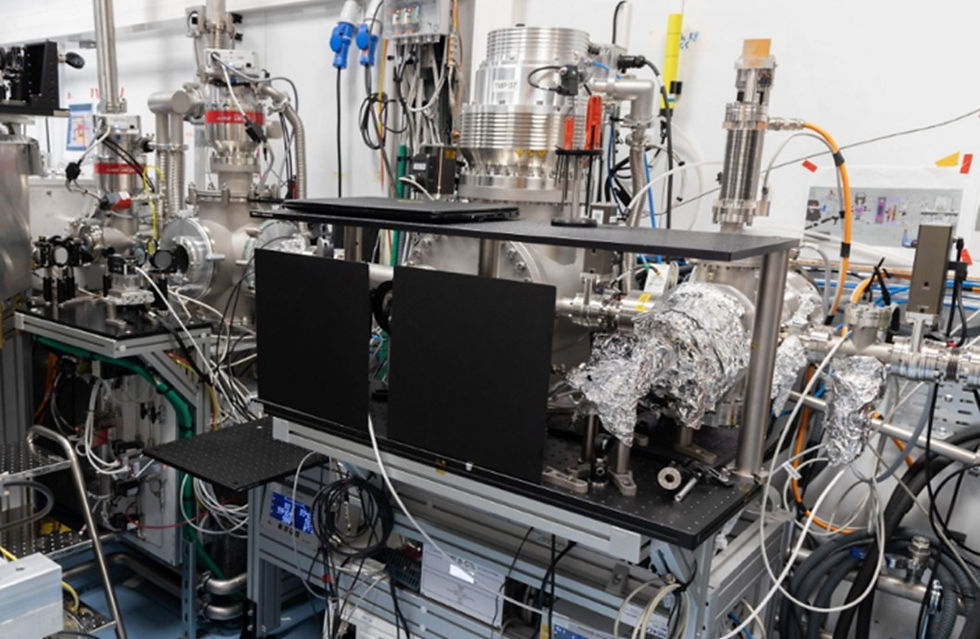High-power diode laser stacks with high duty cycle
- Feb 2, 2024
- 2 min read
Ferdinand-Braun-Institut, Leibniz-Institut für Höchstfrequenztechnik (FBH) has partnered with TRUMPF, LayTec and Finetech to develop innovative high-power diode laser stacks with both very high duty cycle and optical power as well as with low fabrication cost (high yield).
The collaboration takes place in the frame of the recently launched project HOTSTACK, a "ProFIT Innovation" project co-financed from 2023 - 2025 with funds from the European Fund for Regional Development (ERDF) Berlin.
The HOTSTACK project, coordinated by TRUMPF, addresses the need for stacked arrays of diode lasers to pump the new generation of pulsed solid-state lasers of the highest energy class.

The project will realize two types of high-power diode laser stacks as research prototypes. The development of “Type 1” stacks (industrial design) is aimed at the emerging secondary source industry and will realize an especially cost-effective and well-developed industrial design. Specifically, project partner TRUMPF targets increasing the average pump power per stack by a factor of around 20 compared to current systems, via higher pulse repetition frequency and the higher optical pulse power. Parallel research efforts by project partner Finetech into new die bonding technologies and production automation should also drastically reduce manufacturing costs.
In addition, “Type 2” stacks (research design) will be developed, supporting research into the next generation of innovative laser systems of the highest energy, like the ones required for the EuPRAXIA facility. The aim is to increase the average pump power by a factor of 100. The work on this will mainly take place at the Ferdinand-Braun-Institut.
Diode laser are needed in high volumes for high-energy-class laser systems, but are produced using complex manufacturing processes such as epitaxial growth, III-V wafer structuring and etching processes, and reliable process control is essential for understanding and controlling the manufacturing process. Therefore, project partner LayTec (in cooperation with the FBH) will develop innovative integrated optical analysis techniques for both III-V epitaxial growth and wafer process technology, that are intended to improve process understanding and control for such structures. The innovative control methods target greatly increased diode laser fabrication yield, and hence are anticipated to directly enable a highly-cost-effective diode laser fabrication, as needed to support large high energy laser systems.
Learn more about the project on the website: https://fbhlink.de/30kw




Comments